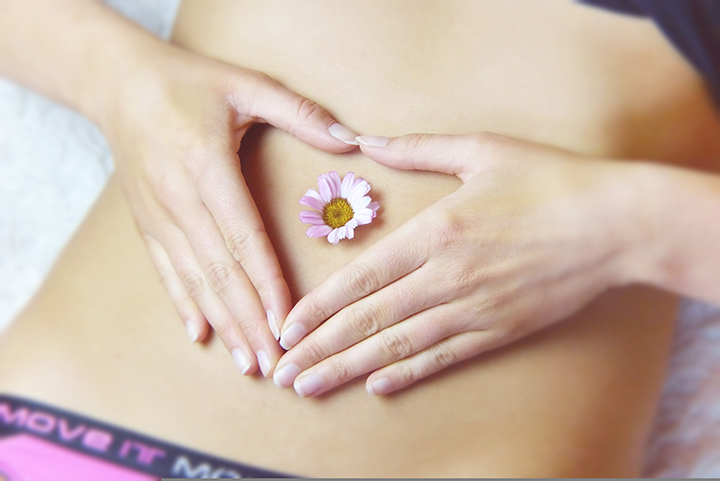Improving gut health through simple dietary and lifestyle changes can balance hormones and alleviate symptoms throughout every part of your menstrual cycle
Many women can relate to the challenges that come with our menstrual cycle. From mood swings to cramps, the symptoms can be unbearable at times. What you may not know is that your daily habits throughout every part of your menstrual cycle play a crucial role in how your body feels, especially during the bleeding phase. Hormonal changes during this time can affect your energy levels, mood, and appetite, and your gut microbiome is a significant contributor to these factors.
The gut microbiome is a community of diverse bacteria in the gut that we all have. Research shows that gut health may play a significant role in hormonal health, which is key during menstruation. Certain bacteria in your gut community are responsible for managing estrogen metabolism, a hormone produced in the ovaries and circulated throughout the body. When this system is balanced, excess estrogen leaves the body through stool. However, if the system fails, the body produces an excess amount of estrogen, resulting in hormonal imbalances called estrogen dominance.
Estrogen dominance can lead to PMS-like symptoms such as bloating, cramps, heavier bleeding, and mood swings. To avoid this, there are some simple things you can add to your everyday life to improve your gut health which in turn will improve your menstrual cycle. Here are some suggestions:
1. Eat more fiber: Doing this will help facilitate healthy digestion. Some high-fiber sources include beans, vegetables, and fruit.
2. Add fermented foods: Fermented foods are known to contain helpful probiotics which can strengthen your gut health and fight off bad bacteria. Some examples of fermented foods are yogurt, kefir, kimchi, sauerkraut, and kombucha.
3. Avoid taking antibiotics: Although sometimes antibiotics are necessary, overuse can lead to antibiotic resistance. In addition, antibiotics are harmful to the microbiome and have harmful lasting effects on healthy bacteria.
4. Take care of your teeth: Research has found that bacteria in your mouth may have a negative effect on your microbiome. Regularly brushing and flossing your teeth can help to remove this bacteria and improve your gut.
5. Manage stress: Chronic stress is damaging to your microbiome and hormone levels, causing ‘leaky gut’. This allows bacteria to develop an inflammatory response. Adopting stress-management techniques like yoga, meditation, or deep breathing are essential.
Thankfully, improving your gut health is relatively easy. By making these simple changes in your daily routine, you can prevent estrogen dominance and improve your overall health and well-being during this time of the month.
Lauren Dunn




